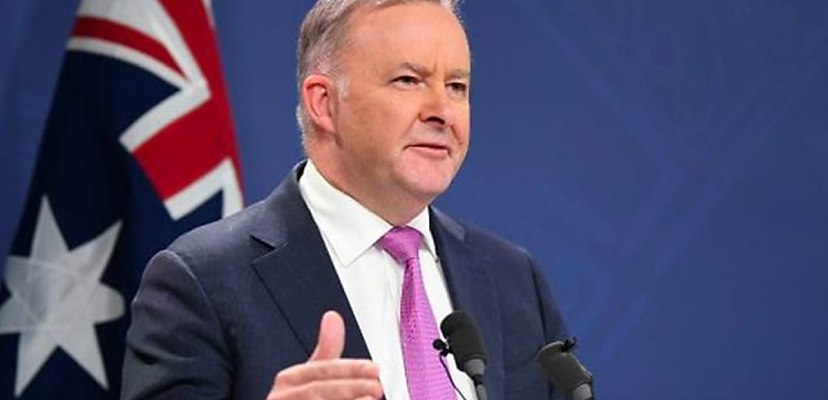Share this article on:
Powered by MOMENTUMMEDIA
Breaking news and updates daily.
Anthony Albanese has announced a raft of measures to counter violent and misogynistic content online following a rise in violence against women.

Content created by misogynistic influencers such as Andrew Tate could be targeted as a part of a “counter-influencer” program announced by Prime Minister Anthony Albanese following an emergency meeting of the national cabinet.
The government announced several measures aimed at addressing a dramatic rise in violence against women, including more than 30 deaths this year.
Eleven Australian women were killed in April alone.
The counter-influencer program will be a part of a “new phase” of the government’s Stop It At The Start campaign, which will be launched in June this year.
“This new phase will specifically include a counter-influencing campaign in online spaces where violent and misogynistic content thrives, to directly challenge the material in the spaces it’s being viewed,” Albanese said in a statement.
“The campaign is intended to counter the corrosive influence of online content targeted at young adults that condones violence against women. It will raise awareness about a proliferation of misogynistic influencers and content, and encourage conversations within families about the damaging impact of the material.”
The government has also announced its intention to legislate a ban on the creation of deepfake pornography amid several law reforms.
“The reforms will make clear that creating and sharing sexually explicit material without consent, using technology like artificial intelligence, will be subject to serious criminal penalties,” Albanese said.
Classification reforms targeting pornographic and violent material are also on the table, as bringing forward reforms to combat doxxing – the sharing of personal information with malicious intent.
Minister for Social Services Amanda Rishworth said after the meeting that, as a parent, she was concerned about the easy access to harmful content online.
“We do know that we need a conversation about this, we do know that we need to give parents the support and resources to have those conversations, and we do need to counter this violent online material,” Rishworth said.
“We know that to end violence against women, we do need generational change, and we need positive role models for young boys to ensure that those negative stereotypes are countered and that influencers that promote damaging attitudes towards women are also countered.”
Rishworth also said that social media platforms have a role to play in countering the spread of such content.
“They have a fundamental responsibility to step up and do more. The content that digital platforms service through algorithms and systems, particularly to young Australians, has an impact in re-enforcing harmful and outdated gender norms,” Rishworth said.
“While digital platforms may not be creating the content themselves, they play a major role in determining much of what people see. We must ensure that our community standards are respected online as well as offline.”
Following the Dr Asher Flynn, Associate Professor of Criminology at Monash University's Faculty of Arts told Cyber Daily that the impacts of deepfake pornography cannot be overestimated.
“Sexual deepfake abuse silences women causing lasting harm," Dr Flynn said via email.
"The announcement from the national cabinet today to introduce federal laws criminalising the non-consensual production, creation, and distribution of sexualised deepfakes (known as sexual deepfake abuse) is a welcome response to recognise the significant harms of this type of technology-facilitated violence.
“It is likely that such laws will also go some way towards curbing the accessibility of sexualised deepfake technologies, like nudify apps. Nudify apps use AI technologies to remove the clothing from any image uploaded. They are advertised freely on people’s social media feeds and widely accessible. If it is illegal to create or produce non-consensual deepfake imagery in Australia, then it would likely reduce the capacity for these technologies focused specifically on sexualised deepfake content to be readily accessible in Australia.
“It is important that any new or amended laws are introduced alongside other responses that incorporate regulatory and corporate responsibility, education and prevention campaigns, training for those tasked with investigating and responding to sexualised deepfake abuse, and technical solutions that seek to disrupt and prevent the abuse.”
UPDATE 02/05/24: Added Monash University commentary.

David Hollingworth has been writing about technology for over 20 years, and has worked for a range of print and online titles in his career. He is enjoying getting to grips with cyber security, especially when it lets him talk about Lego.
Be the first to hear the latest developments in the cyber industry.